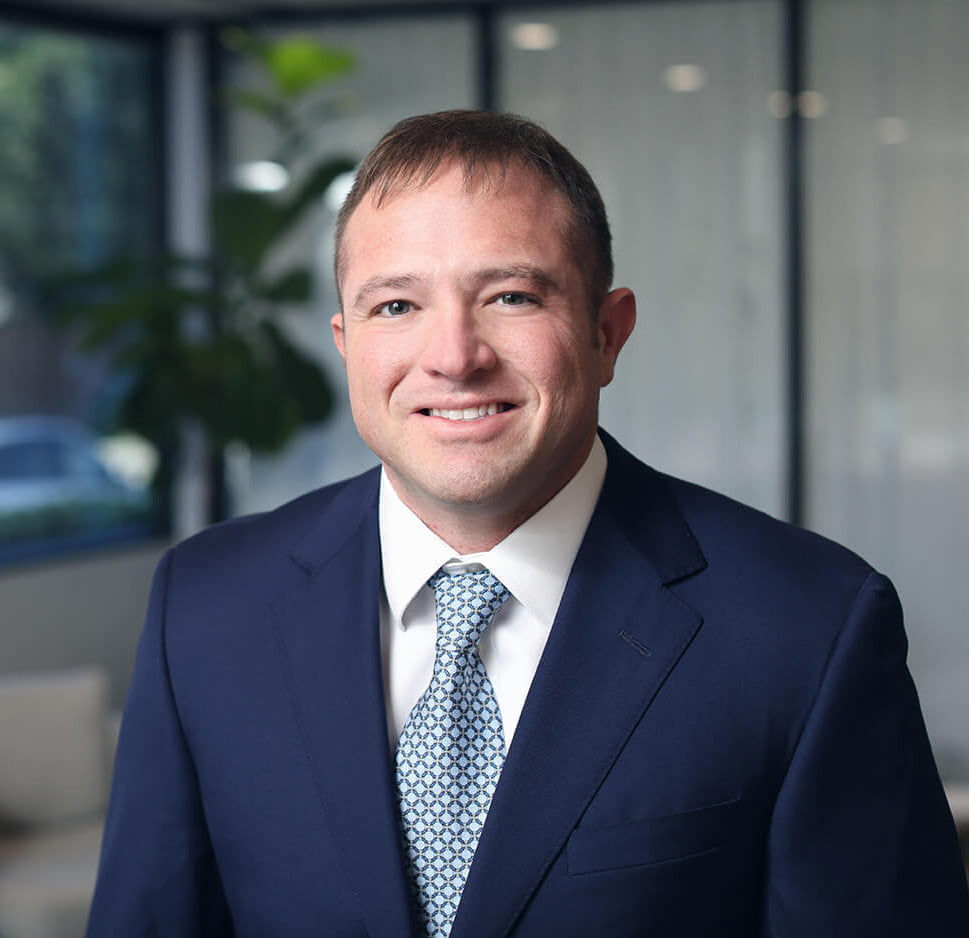Holistic Treatment Center in Houston, Texas
There are many different ways to treat substance use disorder; not all treatment methods are the same. Couple this with the fact that not everybody fits a “typical” bill of addiction, and you start to see the need for individualized care. For some, a more rigid intensive type of care like inpatient residential treatment may be the best course of action. For others, a more holistic approach may be the best way to handle rehab.
At Luna Recovery Services in Houston, Texas we provide people with holistic addiction treatment services to help them through the recovery process. We believe in complementary and alternative medicine to treat the mind, body, and spirit.
What is Holistic Treatment?

Holistic addiction treatment is a form of therapy that takes a person-centered approach to treating substance abuse and the underlying causes of addiction. It emphasizes physical, mental, emotional, and spiritual health as integral components to recovery from addiction. Holistic treatments also take into account individual differences and unique personal histories so that each person’s experience can be addressed and their recovery tailored to specific needs.
The focus of holistic treatments is on the whole person rather than just the addiction itself. It encourages self-awareness, allows for personal growth, and encourages a healthier lifestyle through nutrition, exercise, and healthy coping mechanisms.
Holistic treatment also emphasizes the importance of family involvement in recovery. Families can play an important role in helping people stay on track with their recovery and providing a supportive environment. Family therapy is often included as part of holistic treatment, which can help family members understand the individual’s addiction and how they can best support them in their recovery journey.
Holistic treatments also include alternative therapies such as acupuncture, massage therapy, nutritional counseling, and exercise. These approaches are designed to help individuals heal the body and mind while teaching them tools to manage cravings and triggers. These therapies can also encourage relaxation and stress relief, which can have a positive impact on overall well-being.
Holistic treatment includes many different approaches such as the following:
- Cognitive Behavioral Therapy (CBT)
- Dialectical Behavioral Therapy (DBT)
- Mindfulness-based interventions
- Yoga and meditation
All of these approaches are designed to address the underlying causes of addiction while providing individuals with tools to manage cravings and triggers. Managing triggers is an important step in managing mental health. Triggers are situations, thoughts, or feelings that lead to a negative emotional response. For example, if someone has had a traumatic experience with a certain situation or person, they may become overwhelmed when encountering similar experiences. Managing these triggers can help people stay in control of their emotions.
Holistic refers to the idea that all parts of something must be taken into account when considering it. It is a concept often used in medicine, where physical, emotional, and spiritual aspects of a person are seen as interconnected and necessary for proper health. Holistic care approaches not only look at an individual’s physical symptoms but also beliefs and lifestyle factors that may be affecting their health.
Holistic practitioners also focus on preventative care, encouraging patients to make lifestyle changes and use complementary therapies to maintain overall well-being. This approach is often seen as a more natural and holistic way of treating illnesses or conditions as it looks at the whole of the individual to improve their physical and mental health.
Holistic treatment modalities can also be tailored to a person’s specific needs, taking into account their cultural background, diet, and lifestyle. Holistic care helps to improve overall well-being by combining treatments such as diet and nutrition, exercise, stress management techniques, relaxation techniques, and natural remedies. Each of these aspects is seen as an important piece of the puzzle in creating balance and harmony in the individual’s life.
Treating the mind, body, and spirit is an important part of holistic rehab. For the mind, it’s important to focus on activities that reduce stress and improve mental well-being like meditation, mindfulness exercises, journaling, or creative outlets like drawing. Exercising regularly helps to keep both physical and mental health in shape. Eating a healthy, balanced diet rich in vitamins and minerals is also important for both physical and mental health.
For the body, regular exercise is essential for maintaining physical health. Incorporating different types of exercise into your routine – such as strength training, aerobic activity like walking or running, yoga, or Pilates – can help keep you feeling energized and healthy. And don’t forget to take time for stretching, which can help improve flexibility and reduce the stress on your joints.
In addition to physical health, mental health is also very important. For those struggling with their mental health, seeking professional help is key to managing symptoms. Additionally, it’s important to create a self-care routine for yourself, which may include activities like meditating, journaling, or spending time outdoors. Incorporating these actions into your daily life can help you manage stress and anxiety, as well as promote feelings of happiness and well-being.
Does Holistic Therapy Work?
Holistic treatments are becoming increasingly popular for treating physical, mental, and emotional health issues. Alternative approaches such as holistic therapy focus on the mind-body connection, emphasizing the importance of addressing the whole person—mind, body, spirit—when seeking healing. Proponents of holistic medicine claim that it can be effective in treating a variety of conditions, from depression and anxiety to chronic pain and inflammatory conditions.
Proponents of holistic medicine generally believe that treatments should be tailored to the individual, with a focus on addressing underlying causes rather than just treating symptoms. This may involve lifestyle changes, such as improved diet and exercise, or supplementing traditional medical treatments with natural remedies. For example, some practitioners may advise dietary supplements to address nutritional deficiencies or use herbal medicine and acupuncture to treat chronic pain.
HOW CAN HOLISTIC REHAB HELP WITH ADDICTION?

A holistic therapy program is an approach to care that looks at the individual as a whole, rather than approaching one particular aspect of their life. It focuses on healing the physical, mental, and spiritual aspects of the person to help them recover from their addiction. Holistic approaches can be used in combination with traditional treatments such as medication or counseling.
A holistic recovery center focuses on restoring balance and harmony in an individual’s life. It encourages people to explore their feelings, thoughts, and behaviors around their substance use, as well as exploring the underlying causes of their addiction. Holistic methods typically involve a combination of therapies such as mindfulness-based cognitive behavioral therapy (MBCT), motivational interviewing (MI), and 12-step facilitation.
WHY IS HOLISTIC THERAPY IMPORTANT FOR SUBSTANCE ABUSE RECOVERY?
Holistic addiction treatment is essential because it helps people recover in a way that is much more comprehensive and effective than other forms of treatment. Holistic therapy focuses on all aspects of a person’s life, including their physical health, mental health, emotional well-being, and spiritual growth. This type of approach is designed to help the individual develop better coping skills and tools to manage their addiction.
By taking a holistic approach to treating addiction, individuals can make changes in their lives that can have long-lasting effects. Holistic drug rehab centers focus on the underlying causes of addiction, such as trauma or mental illness, which may have contributed to the development of an addiction in the first place. Through therapies such as mindfulness, art therapy, and psychotherapy, individuals can gain insight into the deeper issues that contributed to their addiction and develop healthier ways of coping with their triggers.
WHO IS A GOOD CANDIDATE FOR A HOLISTIC SUBSTANCE ABUSE TREATMENT CENTER?
Good candidates for holistic addiction therapy are people who are committed to long-term recovery and want to live a healthy lifestyle. Holistic addiction rehab programs can be beneficial for those who have tried traditional treatments but have not seen the desired results or don’t want to rely solely on medication. A good candidate should also be willing to try different holistic therapies and have an open mind about the process.
Holistic addiction treatment can help people create a foundation for long-term sobriety, so commitment to the process is essential. Additionally, those with physical or psychological health issues may benefit from holistic recovery. This is because it is designed to treat both mind and body.
WILL MY INSURANCE COVER HOLISTIC THERAPY?
Most health insurance plans do not cover holistic addiction treatment, as it usually involves complementary and integrative health. However, there are some exceptions to this rule and some plans may offer coverage for holistic drug rehab, with integrative care methods such as acupuncture, meditation, yoga, massage therapy, and other therapies.
It’s important to check with your insurance plan to see if they offer coverage for holistic therapy. Additionally, many rehab centers and addiction treatment clinics accept private pay, which may be an option to consider if insurance does not cover alternative treatments. It is also important to research the specific holistic therapies available in your area and make sure that you are comfortable with the methods used before seeking treatment. Talking to a therapist or doctor about the specifics of a holistic treatment plan is important to ensure that you are getting the best possible care.
Finally, it is also important to remember that while a holistic therapy program may provide relief from addiction and mental health issues, it should be used in conjunction with traditional treatments such as therapy, medication, and group support. Holistic options should never be used as a replacement for traditional methods, but rather as an additional component of a comprehensive approach to mental health.
TREAT YOUR MIND, BODY, AND SPIRIT AT LUNA RECOVERY SERVICES
At Luna Recovery Services, at our holistic rehab, people can come to treat their minds, bodies, and souls with our holistic methods. If you or a loved one are interested in finding out more, you can contact us here.
Dr. Allaire received his Bachelors of Science in Biology from the University of Houston, as Valedictorian of the College of Natural Sciences and Mathematics, and his Medical Doctorate from Baylor College of Medicine, where he served as Chief Resident. He is the medical monitor for the Physician Counseling Committee of the Harris County Medical Society and the Medical Director of Serenity House Detox. Dr. Allaire specializes in medically assisted detox cases, treating patients in recovery from addiction or other mental health disorders, the medical assessment and monitoring of patients with addictive disorders, medical care related to eating disorders and the medical treatment of patients with mental health conditions.



